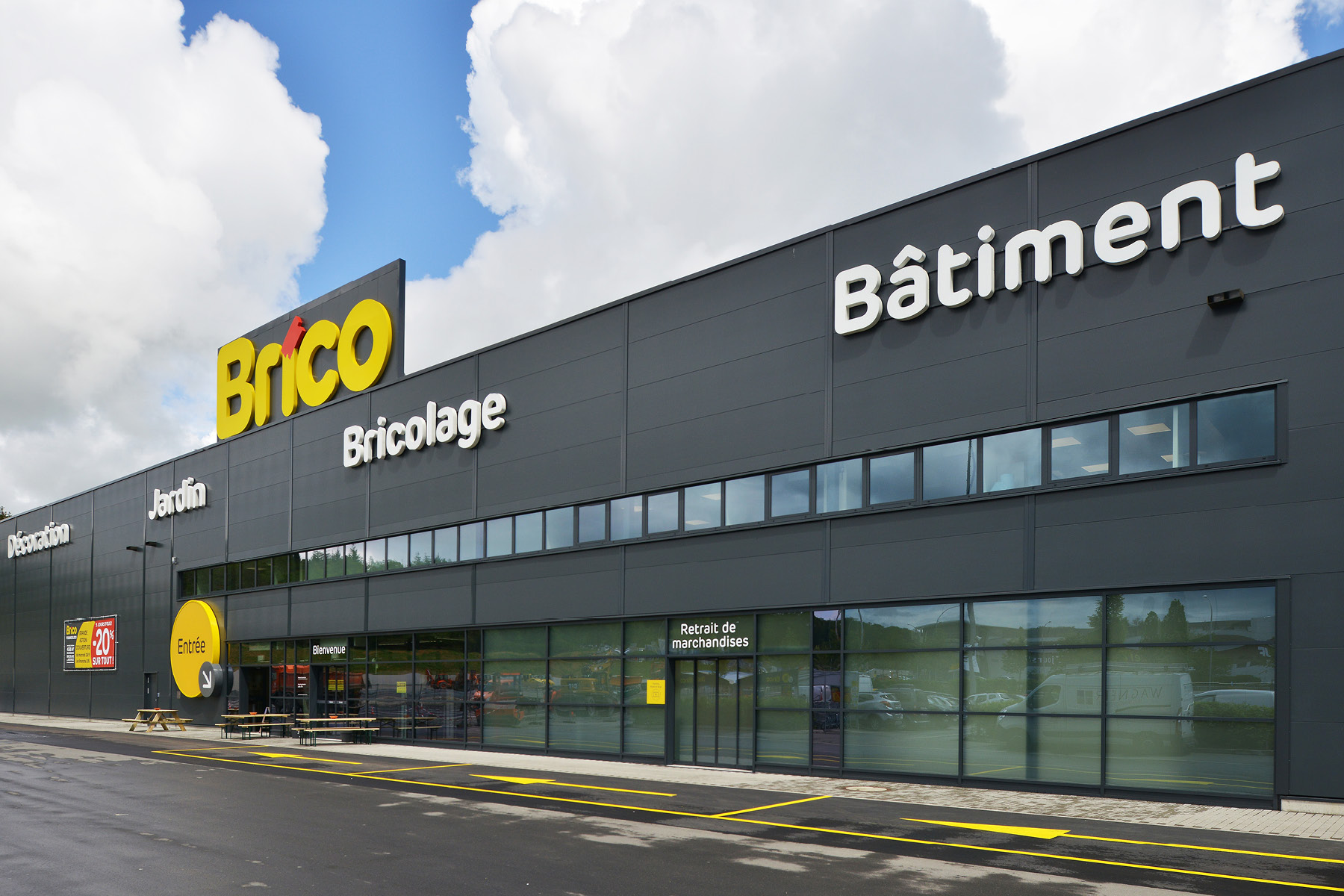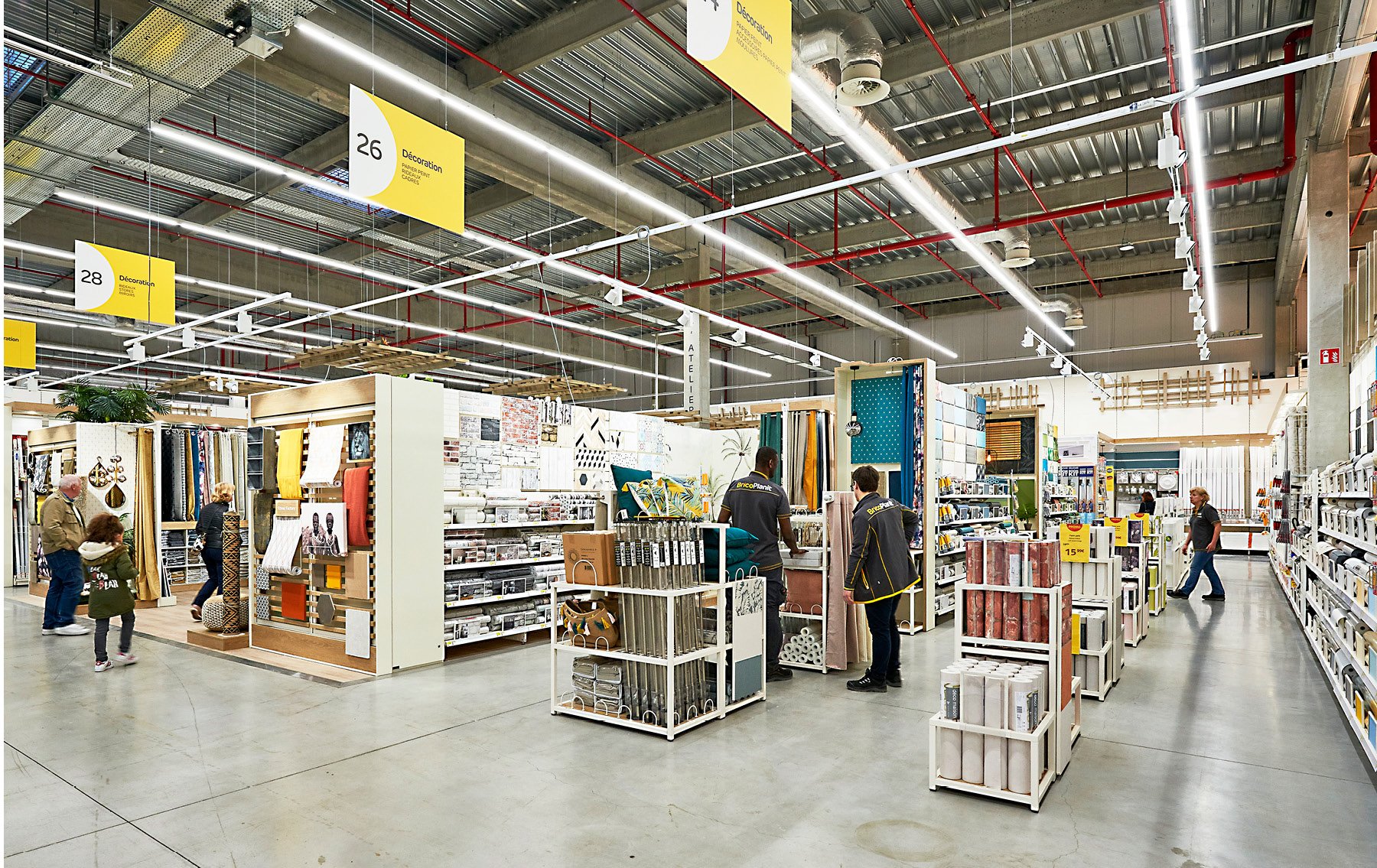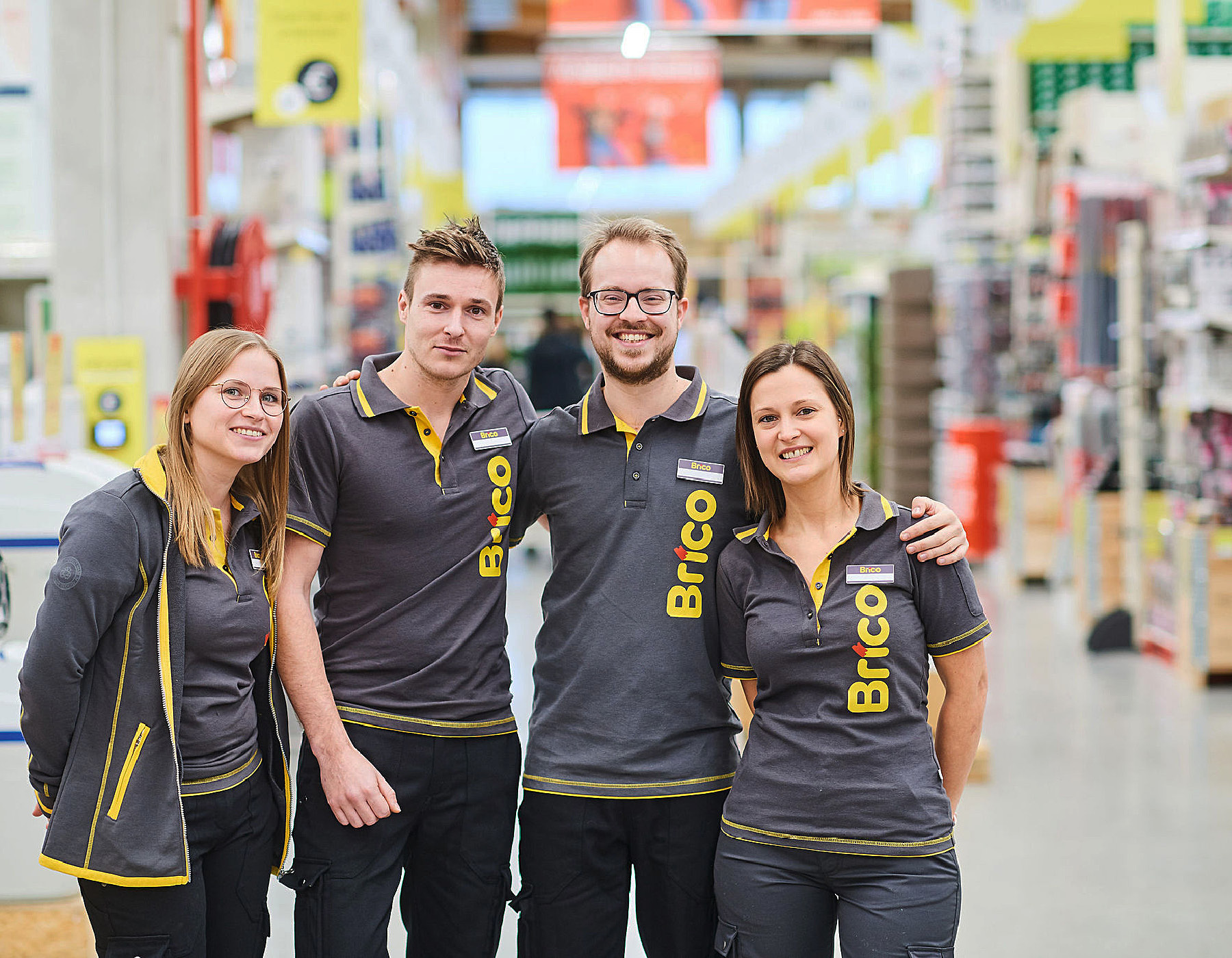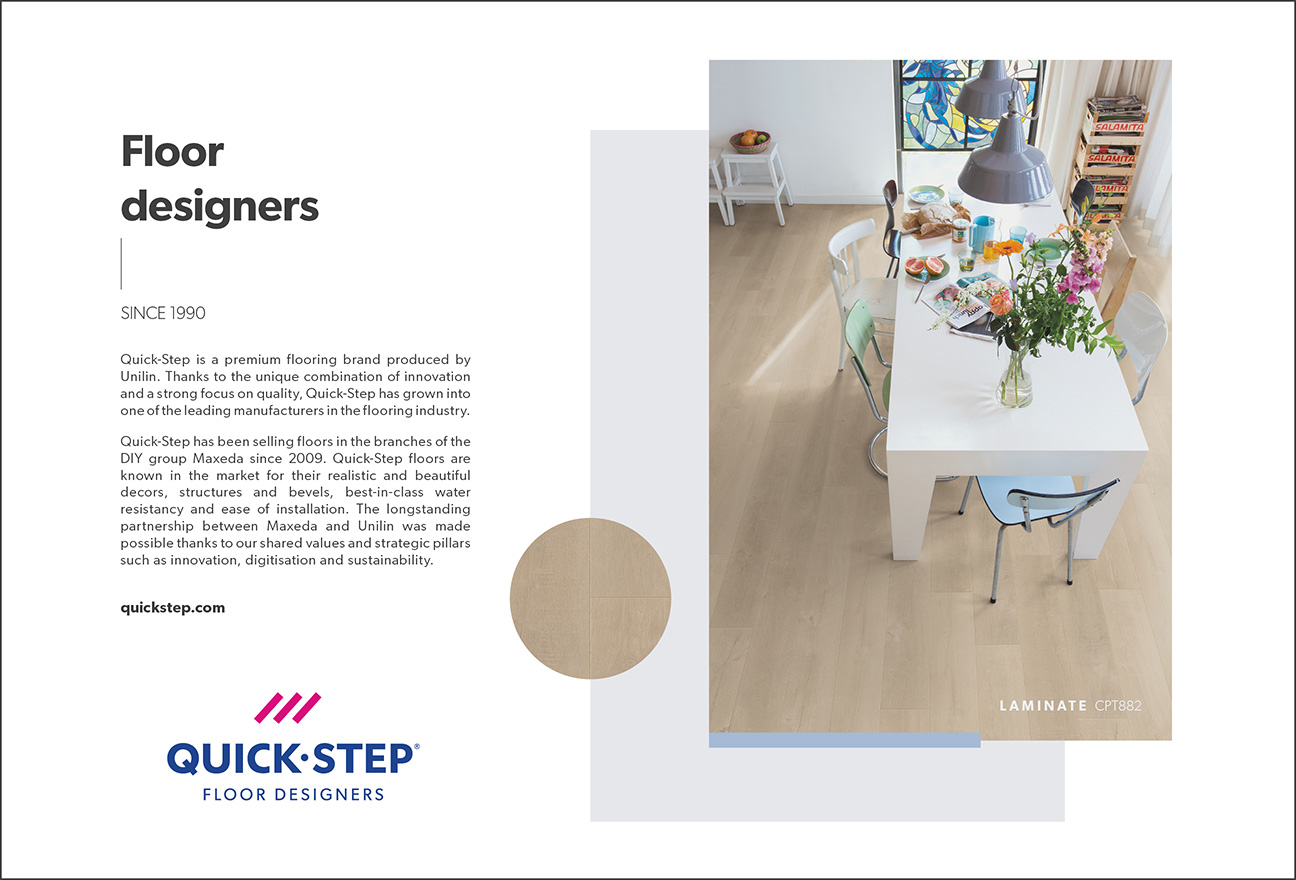While many major companies are keen to showcase their commitment to technology and innovation, Patrick Vandenbogaerde takes a different approach when asked about his strategy at Brico, the do-it-yourself store chain where he is Managing Director.

“I cannot exactly say we are an innovative company,” he says. “We do repairs, and we do home maintenance, so in terms of innovation, we are always five or six years behind.” In other words, customers don’t need things fixed in their homes when they’ve just been installed.
That’s not to say Brico isn’t forward-thinking and on the ball. The company is hugely successful, with some 136 Brico and 13 BricoPlanit stores across Belgium and Luxembourg, where its brand is beloved by DIY aficionados.
For Patrick, the key to continuing this success is not to try to be the company that beats others to market with a snazzy new product, but rather to continue focusing on the basics that have made it such a strong brand so far.
To be sure, when new home technology does come to market, Brico takes an interest and plans ahead accordingly for the medium-term.

It’s not always easy to make choices online, for example, if you’re choosing colours. You need to be in the store sometimes. Technology cannot replace this at the moment.
“So everybody is now ventilating their homes with this new technology for the A-B-C-D ventilation,” Patrick explains. “They will come to replace it within six to 10 years. That’s when we need to step up and put that technology in our stores. Otherwise, we still remain very traditional.”
‘Yes We Can’
Patrick’s approach to digitalisation and online sales follows the same pragmatic formula, recognising the opportunities that new ways of doing business offer without losing sight of the fundamentals that make Brico strong.
“We will remain a bricks-and-mortar company,” he confirms. “It’s not always easy to make choices online, for example, if you’re choosing colours. You need to be in the store sometimes. Technology cannot replace this at the moment.”
One of Brico’s key assets is the deep knowledge of its staff, many of whom have spent decades working at the company, helping customers find what they need to solve their DIY problems.
“If you need to buy a hammer, you can buy it online,” Patrick points out. “But if you need a special hammer for a special purpose, then you really have to ask our people and that’s something else technology cannot replace. For me, it’s a combination; technology should be at the service of our well-trained staff.”

We are heavily investing in digital, but in a smart way.
Patrick believes in a hybrid between digital and physical, which he describes with the slogan ‘Yes We Can’ – a reference to efforts to encourage in-store staff to use Brico’s online channels more when helping customers who can’t find what they need.
“Three out of 10 customers who come into our stores don’t buy anything, because they can’t find it,” he says. “If you have a small store, you don’t have the full range, so our people need to embrace online to help customers more, to say, ‘Did you find everything you wanted?’ And if they didn’t, to look together, to do assisted sales online. Then it can be ordered to the store or delivered the next day.”
However, convincing staff to embrace these digital platforms has been a challenge. Many see the company website as competition to the stores where they work, Patrick explains.
“They all earn the money in the store and, of course, they get some bonuses for their stores. So they think: ‘OK, the website is not our business.’ So we’ve done a lot of work to help people to embrace the digital world.”
Another reason Brico keeps such a strong focus on physical stores has to do with the geography of Belgium. Because the country is relatively small, on average customers are never more than a seven-minute drive from a DIY store. In larger countries like France, the average driving time may be more like 30 minutes, Patrick reveals.
“If you have a plumbing problem at seven in the morning, it’s better to take your car and drive seven minutes, take it from the store and then repair it,” he says.
“We are heavily investing in digital, but in a smart way. If I ask for money from my board to invest in stores, the business case is easily made. If I have to ask for money for digital, then the business case is much more difficult, and much more uncertain. So getting both things working together is, for me, the most important thing.”
A love brand
One major strength that Brico enjoys as a result of having such knowledgeable staff is its status as a love brand in Belgium, where its name is instantly recognisable to most people.
“Everybody knows us, from the age of two until 111 years old,” Patrick says. “People love us, and the love comes mainly from the fact that we are helping people. If they come to our stores, usually it’s because they are in trouble. Their toilet seat broke. Their lighting doesn’t work anymore. That’s why we invest a lot into training our teams.”
Brico’s strong reputation helps the company maintain a lean marketing operation. It once sponsored professional cycling back in the 1990s to boost its brand profile, but Patrick says that is no longer necessary. The company is regularly approached by various media outlets in the country to comment on DIY topics. “We are always getting extra coverage on television and radio, and in journals,” he shares.

To help ensure that the public’s deep affection for the brand stays strong into the future, Brico invests in the communities it serves. The company has, for example, an annual initiative to fund the renovation of Belgian schools. Each year, more than 700 schools send videos to the company in a bid to win €10,000 worth of Brico goods to renovate their buildings, with the company choosing 20 winners.
“Plus, an employee from a nearby store goes to help the children and the teachers and parents to renovate the school of their dreams,” Patrick shares. “That’s also why we’re a love brand.”
The company also inspires deep affection from its roughly 3,000 employees, whom Patrick views as partners worth investing in for the long-term, regardless of their seniority. “Everybody is extremely important – the whole chain. From the cleaners to the people in logistics to those in the store serving the customers,” he stresses.
Knowing that he has the task of getting the best performance out of those employees on a daily basis is what gets Patrick out of bed every morning. “If they are enthusiastic and they are motivated by us, they will also serve our customer in the best way with the best product and the best price for the quality,” he says. “That’s what it’s about for me: I want to inspire.”
Proudly supported by:




